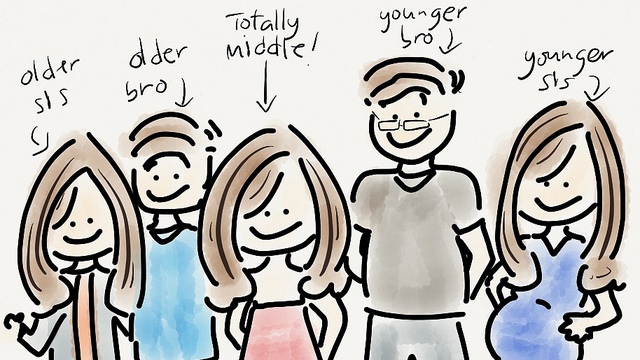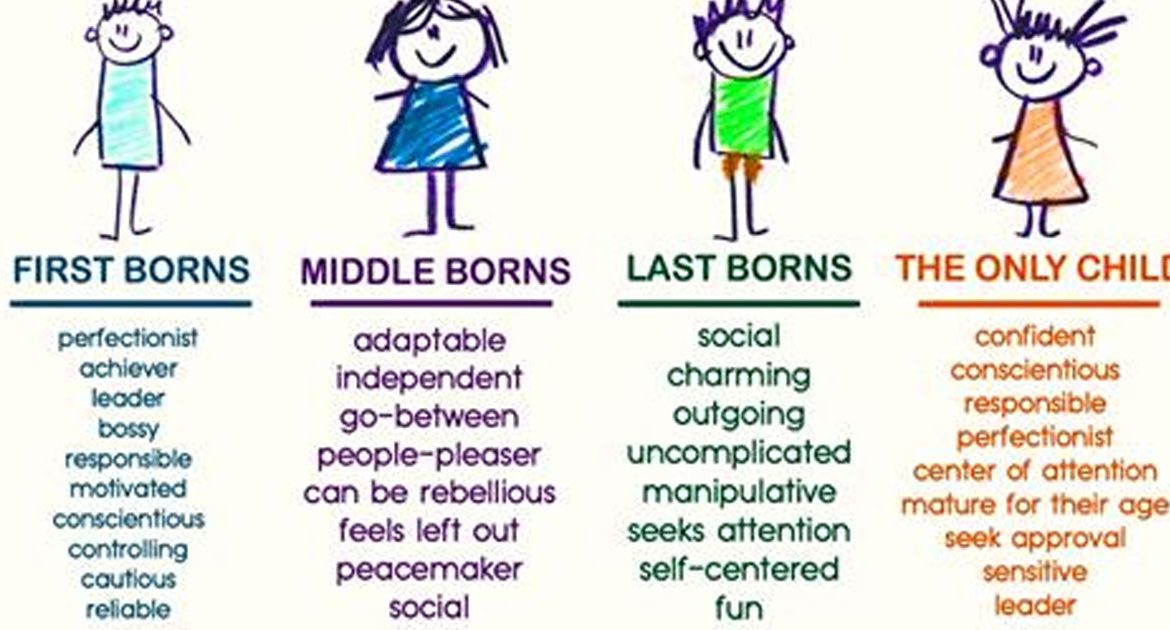It’s a general assumption that the order of birth in a family can somewhat determine your personality and intelligence, but how much of this is exactly true? Is an older brother or sister automatically more responsible, and are only children less eager to share their belongings? Let’s take a look at some interesting research to see how birth order effectively impacts a child’s personality.
The research of this subject goes a long way back. Almost one hundred years ago, a good friend of none other than Sigmund Freud, Alfred Adler, was a big believer that the order in which you were born greatly affects your personality. Those claims have been somewhat proven by further research, although the science, of course, isn’t exact.
The oldest child in the family tends to have better leadership skills and takes a more conservative, power-oriented and dominant approach. The oldest child in the family often takes care of their siblings, which develops a stronger responsibility and caring feeling. Firstborn children also will take more initiative, according to Adler. Research has also shown that firstborns are more honest, but aren’t as stress-resistant as their siblings.
Opposite to the firstborn child, the youngest children tend to form a different personality. Younger children are usually overpampered by their parents and enjoy the attention they’re given by their older siblings. Kids that were born the latest can feel less independent compared to their siblings. Nonetheless, youngest children are highly motivated to ‘one-up’ their older siblings. They also tend to be strongly socially developed.

Personality-wise, middle children tend to be situated somewhere in between these two. The older sibling can be best described as the ‘pace-setter’ in the family, which often leads to a more ambitious approach for the middle children. They set the bar high and make more errors than usual, but allows them to learn more from their mistakes. Middle children are conscientious and diligent.
The only child doesn’t have to worry about competing with other siblings. Only children are usually pampered a lot as well and tend to receive a lot of protection from their parents. Only children tend to get dependent on other people and are usually more self-centered according to Adler, but research has shown that they’re quite open as well, although more nervous than their peers. Perfectionists are often only children who never stop to achieve their goals.

In terms of intelligence levels, two German universities researched more than 20,000 people over 18 years of age across Europe and the United States, which showed that older children tend to have a higher IQ.
Please Liked Video this with your friends and family.






